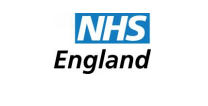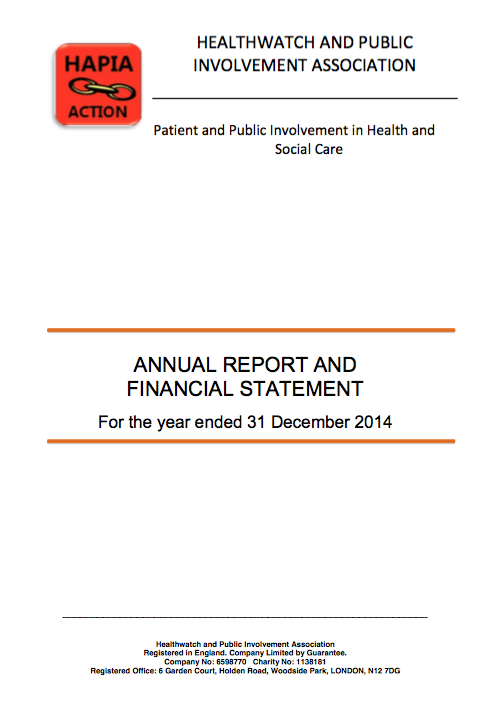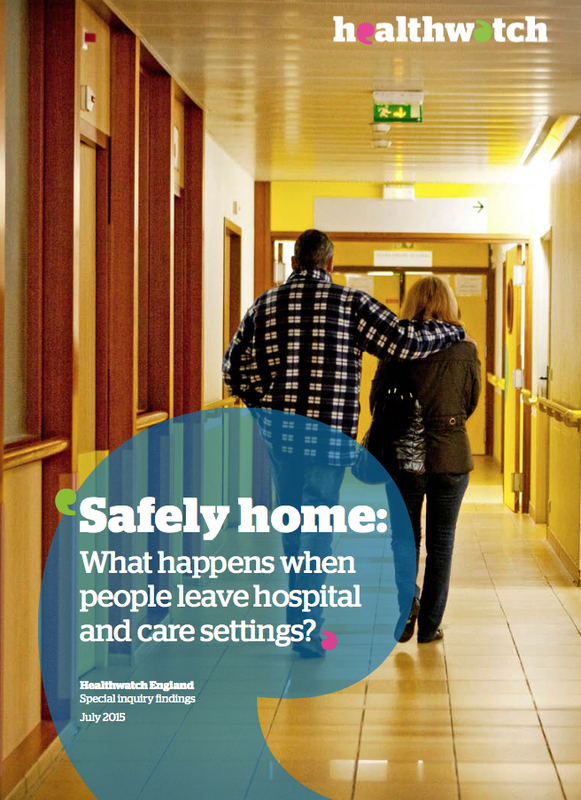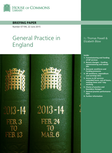NEWS - AUGUST and SEPTEMBER 2015
The groups work with partner organisations on national patient safety issues. There are currently vacancies for PPV representatives on the Steering Group and on the Patient Safety Expert Groups for Children and Young People, Medical, Mental Health and Women’s Health. The closing date for applications is Friday 11 September 2015.
If you are interested in applying for one of these posts, more detailed information and application forms are available in the links below. The closing date for applications is Friday 11 September 2015.
If you are interested in applying for one of these posts, more detailed information and application forms are available in the links below. The closing date for applications is Friday 11 September 2015.
US CORPORATION BROUGHT IN TO HELP IMPROVE FIVE TRUSTS
An American healthcare corporation is being brought in to support five trusts in improving quality and clinical engagement. The Health Secretary will announce a five year, £12.5m programme to bring in Virginia Mason to five hospital Trusts with a combined turnover of more than £2bn.
The Trusts are:
Virginia Mason is being paid £9m by the Department of Health, with a further £3.5m set aside to cover costs such as airfares and managing the project. The programme will see visits from Virginia Mason staff and the training of some staff at each trust on the Seattle based company’s methods and principles.
The tender document for the work (attached ) said each of the five Trusts would receive “five days of provider time to use in [each of] the first two years”.
An American healthcare corporation is being brought in to support five trusts in improving quality and clinical engagement. The Health Secretary will announce a five year, £12.5m programme to bring in Virginia Mason to five hospital Trusts with a combined turnover of more than £2bn.
The Trusts are:
- Shrewsbury and Telford Hospital Trust
- Surrey and Sussex Healthcare Trust
- Barking, Havering and Redbridge University Hospitals Trust
- Leeds Teaching Hospitals
- and University Hospitals Coventry and Warwickshire
Virginia Mason is being paid £9m by the Department of Health, with a further £3.5m set aside to cover costs such as airfares and managing the project. The programme will see visits from Virginia Mason staff and the training of some staff at each trust on the Seattle based company’s methods and principles.
The tender document for the work (attached ) said each of the five Trusts would receive “five days of provider time to use in [each of] the first two years”.
|
.HOSPITAL DISCHARGE
By: Healthwatch England ... 60 pages When discharge goes wrong, it comes at significant cost, both to individuals and to the health and social care system. Whilst the financial cost of this problem is recognised, not enough is known about the human cost. We undertook this inquiry to bring the true emotional and physical impact of this persisting problem to light. With the help of 101 local Healthwatch, we heard from over 3,000 people who shared their stories with us about their experiences of the discharge process. Throughout this inquiry, we focused on the experiences of older people, homeless people, and people with mental health conditions – three groups for whom the consequences of a failed discharge process were particularly detrimental. |
HEALTH SERVICE OMBUDSMAN
http://phsoext.newsweaver.com/138i5ce1hme1938z64hvmg?email=true&a=2&p=586701&t=191123
Constituents’ cases
In 2014/15, we assessed 1,271 cases about UK Government and other UK public organisations which had been referred to us by MPs. This represented 19% of all the cases we assessed that year.
Constituents may also take complaints about the NHS in England to their MP if they wish, but it is not necessary to do this.
We want to make the process of referring a constituent’s complaint to us as simple as possible. Our new leaflet summarises our processes and gives MPs and their caseworkers some useful questions to ask constituents before they pass a complaint to us.
http://phsoext.newsweaver.com/138i5ce1hme1938z64hvmg?email=true&a=2&p=586701&t=191123
Constituents’ cases
In 2014/15, we assessed 1,271 cases about UK Government and other UK public organisations which had been referred to us by MPs. This represented 19% of all the cases we assessed that year.
Constituents may also take complaints about the NHS in England to their MP if they wish, but it is not necessary to do this.
We want to make the process of referring a constituent’s complaint to us as simple as possible. Our new leaflet summarises our processes and gives MPs and their caseworkers some useful questions to ask constituents before they pass a complaint to us.
NHS ENGLAND COMPLAINT C-021188 ... HAPIA and MEDICAL JUSTICE
Failure to Involve Patients and the Public in the Commissioning of Immigration Detainee Healthcare
Failure to Involve Patients and the Public in the Commissioning of Immigration Detainee Healthcare
- Letter to Kate Davies, Head of Public Health, Armed Forces Health and Offender Health from Christine Hogg, Chair, Medical Justice and Malcolm Alexander, Chair, HAPIA - undated
- Letter / Email to Malcolm Alexander, Chair, HAPIA from Rosamond Roughton, Director of NHS Commissioning, NHS England - 23 June 2015
- Letter to Rosamond Roughton, Director of NHS Commissioning, NHS England from Christine Hogg, Chair, Medical Justice and Malcolm Alexander, Chair, HAPIA - 09 July 2015
- Response to letter - Kate Davies, Head of Public Health, Armed Forces Health and Offender Health and Chris Kelly, Assistant Head of Health and Justice Commissioning, NHS England - 7 pages
COST OF MEDICINES PRINTED ON PACKET
The Government is hoping to reduce the cost of wasted medication by informing patients of the cost to NHS of the drugs they are prescribed. As of next year, the packaging of all medicines costing more than £20 will come with the cost of the drug to the NHS printed on the label, Health Secretary Jeremy Hunt, has said. Mr Hunt said that people who use NHS services need to know that in the end they are paying the price of waste, in a speech earlier this week focused on patients taking personal responsibility for reducing unnecessary burdens on the NHS.
The Government will start the work to develop the new packaging - which will also state that the drugs are ‘funded by the UK taxpayer’ - this year, with the aim to implement the changes by next year, Mr Hunt said.
He said: ‘People who use our services need to know that in the end they pay the price for this waste. So today I can announce that we intend to publish the indicative medicine costs to the NHS on the packs of all medicines costing more than £20, which will also be marked “funded by the UK taxpayer”.
‘This will not just reduce waste by reminding people of the cost of medicine, but also improve patient care by boosting adherence to drug regimes. I will start the processes to make this happen this year, with an aim to implement it next year.’
The Government is hoping to reduce the cost of wasted medication by informing patients of the cost to NHS of the drugs they are prescribed. As of next year, the packaging of all medicines costing more than £20 will come with the cost of the drug to the NHS printed on the label, Health Secretary Jeremy Hunt, has said. Mr Hunt said that people who use NHS services need to know that in the end they are paying the price of waste, in a speech earlier this week focused on patients taking personal responsibility for reducing unnecessary burdens on the NHS.
The Government will start the work to develop the new packaging - which will also state that the drugs are ‘funded by the UK taxpayer’ - this year, with the aim to implement the changes by next year, Mr Hunt said.
He said: ‘People who use our services need to know that in the end they pay the price for this waste. So today I can announce that we intend to publish the indicative medicine costs to the NHS on the packs of all medicines costing more than £20, which will also be marked “funded by the UK taxpayer”.
‘This will not just reduce waste by reminding people of the cost of medicine, but also improve patient care by boosting adherence to drug regimes. I will start the processes to make this happen this year, with an aim to implement it next year.’
FIRST STEP TO CHARGING FOR MISSED APPOINTMENTS?
Mr Hunt when asked whether he would like to charge patients who miss their GP appointment, responded: ‘I think [the] question is incredibly important because we are very stretched for resources, doctors and nurses are working incredibly hard and we’re going to have a million more over-70s by the end of this Parliament.
‘If we are going to square the circle and have a fantastic NHS, despite all those pressures, then we have got to take personal responsibility for the way that we use NHS resources. I don’t actually have a problem in principle with the idea of charging people for missed appointments.’
However, he said that although he supports the idea in principal, he thinks it could be difficult in practice.
He said: ‘I think in practical terms it could be difficult to do but I’ve taken a step, if you like, towards that this week by announcing that when people do miss an appointment they will be told how much that has cost the NHS as a first step.’
Mr Hunt when asked whether he would like to charge patients who miss their GP appointment, responded: ‘I think [the] question is incredibly important because we are very stretched for resources, doctors and nurses are working incredibly hard and we’re going to have a million more over-70s by the end of this Parliament.
‘If we are going to square the circle and have a fantastic NHS, despite all those pressures, then we have got to take personal responsibility for the way that we use NHS resources. I don’t actually have a problem in principle with the idea of charging people for missed appointments.’
However, he said that although he supports the idea in principal, he thinks it could be difficult in practice.
He said: ‘I think in practical terms it could be difficult to do but I’ve taken a step, if you like, towards that this week by announcing that when people do miss an appointment they will be told how much that has cost the NHS as a first step.’
|
COMMONS BRIEFING PAPER ON GENERAL PRACTICE
Commons Briefing papers CBP-7194 ... Authors: Elizabeth Blow; Tom Powell ... Published 23 June 2015 This briefing paper provides general background for Members and their staff on NHS primary medical services provided by general practitioners (GPs) in England. It gives an overview of commissioning arrangements as well as information on changes to GP contracts and funding arrangements. |
As well as providing an account of the different contracting routes for core and enhanced services, this briefing provides information on the financial pressures and increases in demand facing GP practices as well as data on GP numbers, expenditure and earnings.
It includes sections on specific elements of the 2014/15 GP contract including the introduction of named GPs for over 75s and increased choice of GP practice, and changes to the 2015/16 GP contract which included extending the requirement for a named GP to all patients. The note also includes information on extended opening hours, out-of-hours services, waiting times for appointments and the 2015 Conservative Government commitment to provide 7 day access to GPs. It also provides information on general practice performance data and links to further information.
It includes sections on specific elements of the 2014/15 GP contract including the introduction of named GPs for over 75s and increased choice of GP practice, and changes to the 2015/16 GP contract which included extending the requirement for a named GP to all patients. The note also includes information on extended opening hours, out-of-hours services, waiting times for appointments and the 2015 Conservative Government commitment to provide 7 day access to GPs. It also provides information on general practice performance data and links to further information.





